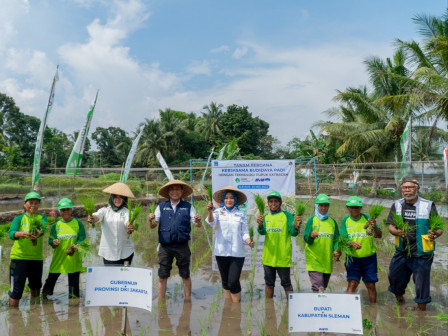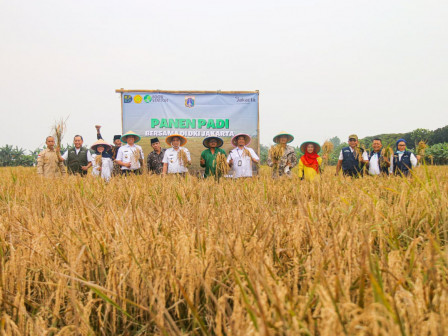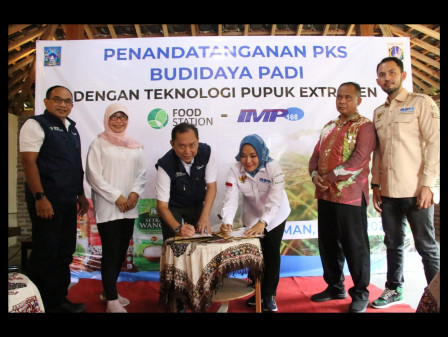Food Station Continues to Innovate in Food Security
Reported by Aldi Geri Lumban Tobing | Translated by Nugroho Adibrata
PT Food Station Tjipinang Jaya (FSTJ) is committed to continuously innovating in food security toward food sovereignty through intensification programs. One of them is cultivating using technology that can increase crop productivity with compost and litter, as well as ExtraGen liquid organic fertilizer technology.
This is a corporate action that we are taking to maintain food security
PT FSTJ President Director Pamrihadi Wiraryo said cultivation with this method could reduce the use of chemical fertilizers, including increasing agricultural productivity by a ratio of 20-25 percent per hectare at the same time.
Thus far, his party had collaborated on contract farming and cultivation with many farmer groups (Gapoktan) and cooperatives in several cities and regencies with 8,180-hectare-width land.
Food Station Earns Turnover of Tens of Millions at Jakarta FairFrom the land, his party was projected to absorb 46,626 tons of dry grain harvested.
"This is a corporate action that we are taking to maintain food security and anticipate the surge in demand for rice due to shifting consumption patterns," he explained, Wednesday (7/20).
He explained that the impact of the turmoil in Ukraine that Indonesia needs to anticipate is one of the changes in consumption from bread or noodles to rice. Predictably, the demand for rice would increase and the price of grain and rice would potentially increase.
"The scarcity of wheat in Europe can result in a shift in consumption of staple foods to rice. Thus it will trigger demand for rice from rice-producing countries," he explained.
As for the information, turbulent relations between Russia and Ukraine have an impact on the threat of a food crisis in the world. The Food and Agriculture Organization (FAO) said the turmoil in Russia and Ukraine also contributed to triggering the food supply crisis. As a result, the price of soft commodities (wheat, CPO, coffee, cheese, soybeans, cocoa, and milk) has the potential to increase.
In Indonesia, the Central Statistics Agency (BPS) released data that the production of milled dry grain (GKG) in 2021 decreased by around 0.45 percent when converted into rice from 31.5 to 31.3 million tons.
As for the population, it will increase by a ratio of 1.25 percent (2020), 1.22 percent (2021), and 1.17 percent in 2022.
Based on the Trade Ministry's data explained that wheat prices throughout May 2022 had increased by 5.6 percent. Moreover, the policy of banning the export of food raw materials by several countries such as India caused food prices to rise.





